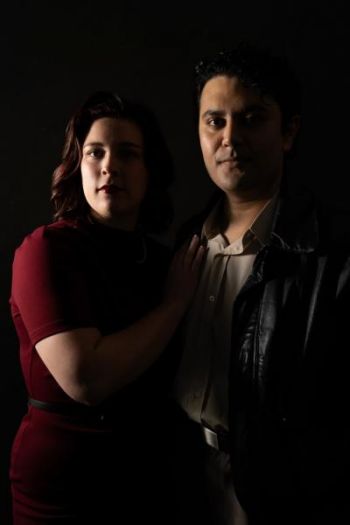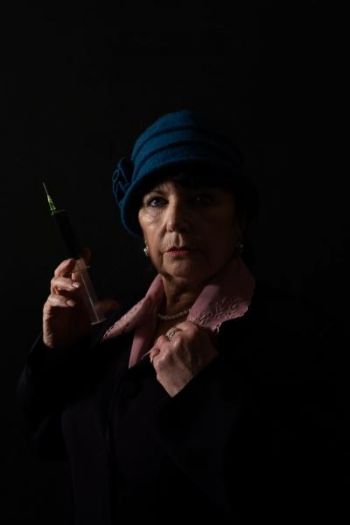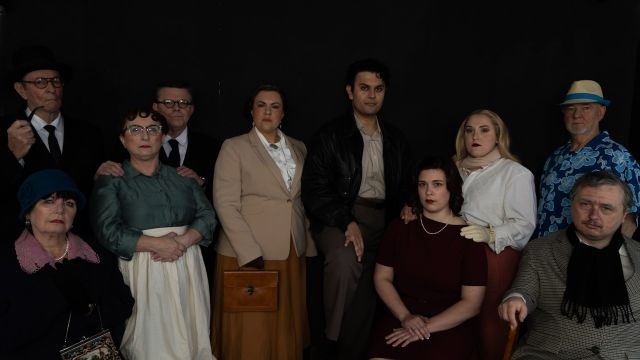And Then There Were None
Community theatre means many things to different people, but what Phoenix Variety and Music Group bring to McLaren Vale is theatre for the community. Keen supporters – family, friends and locals alike – are laden with hampers of food; the round tables see people who don’t know each sitting shoulder to shoulder, sipping the local wine, and enjoying the theatre on the Institute Hall stage.
 Agatha Christie’s novel, first published under a very different (and racist) name in 1939, was first adapted for the stage by Christie herself in 1943, though the majority of the productions staged used the happy-ever-after ending that was changed from that of the novel. Phoenix Variety and Music Group have returned to the original ending, and staged the three-act play it in a single room of a house on an island off the Devon Coast.
Agatha Christie’s novel, first published under a very different (and racist) name in 1939, was first adapted for the stage by Christie herself in 1943, though the majority of the productions staged used the happy-ever-after ending that was changed from that of the novel. Phoenix Variety and Music Group have returned to the original ending, and staged the three-act play it in a single room of a house on an island off the Devon Coast.
The story begins with a haunting rendition of a nineteenth-century song, almost a macabre nursery rhyme, about the various methods of death suffered by each of ten soldiers. Soon, eight seemingly unconnected people arrive at the island, each invited by Mr and Mrs Owen, and greeted by the butler and housekeeper, Thomas and Ethel Rogers.
It soon becomes clear that no-one actually knows the Owens, and after a creepy recording informs those present that each of the ten people in the room has committed murder, the old rhyme starts becoming reality.
Director Justine C Lewis has assembled a mixed cast to take on the ten characters, each distinctly and wonderfully dressed by Lukas Barker. The small stage is a little crowded with all ten trying to find good sightlines – which becomes a lot easier once they start dying!
Meg Smith is the anchor of the cast, as Miss Claythorne: she is most convincing as her initial confidence crumbles with fear. Deirdre Quinn as Ms Brent is suitably abrupt and singular-minded; and newcomer John Kavanagh shows some promise, as he deadpans his role as the butler.
 The venue isn’t the usual one in Noarlunga – that’s undergoing redevelopment – and it’s commendable that they remained in the south, finding a temporary home in McLaren Vale. Unfortunately, the hall isn’t ideal for stagework: the acoustics aren’t ideal for a dialogue-heavy production, the lighting is challenging, and the auditorium doesn’t lend itself to immersion in the characters in front of us.
The venue isn’t the usual one in Noarlunga – that’s undergoing redevelopment – and it’s commendable that they remained in the south, finding a temporary home in McLaren Vale. Unfortunately, the hall isn’t ideal for stagework: the acoustics aren’t ideal for a dialogue-heavy production, the lighting is challenging, and the auditorium doesn’t lend itself to immersion in the characters in front of us.
Director Lewis takes her performers through the expositional reveals of Christie’s imperfect people, but with ten of them, this takes some time before we find some momentum. Long scene changes don’t help to sustain that, so there’s plenty of room to accelerate the pace, and build and hold the tension more successfully.
However, that’s not what this production is about: the technical elements are secondary to the enjoyment of the vast majority of the audience, who love seeing their friends and family play larger-than-life characters in a story set ninety years ago and halfway around the globe.
And that’s what theatre for the community is about – supporting those people known to them who are courageous enough to show their talents to us all.
Review by Mark Wickett
Subscribe to our E-Newsletter, buy our latest print edition or find a Performing Arts book at Book Nook.

